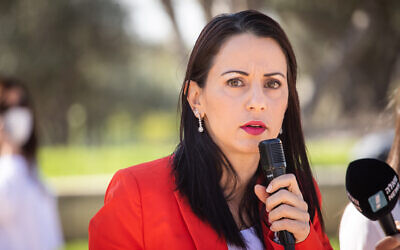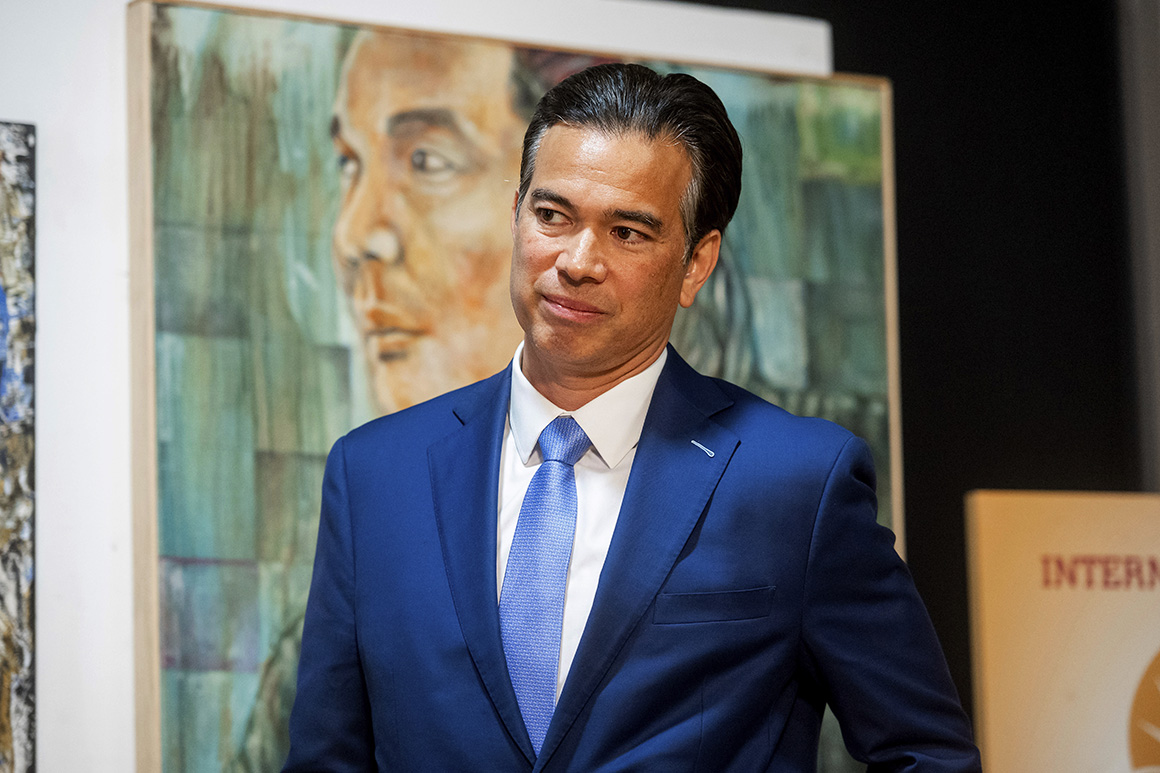Former justice minister Avi Nissenkorn announced Sunday morning that he would be taking a “time-out” from politics and would not be running in the March election with The Israelis, less than a month after he was recruited as the new party’s number two.
The move, which comes days before parties must submit their final slates to the Central Elections Commission, sets up a possible merger between The Israelis and the Labor party, with each looking for a union to bolster their chances of passing the electoral threshold. Newly elected Labor chief Merav Michael had reportedly made Nissenkorn’s ouster a condition for a merger.
Writing on Facebook, Nissenkorn said that he had joined The Israelis out of an “ideological belief” that it would work to “protect the rule of law… while fighting discrimination and racism” and to advance “gender equality, the rights of the LGBT community and equality among all Israeli citizens.”
But the former Blue and White MK, who left the centrist party at the beginning of January, said he recognized the need for him to step aside in order for The Israelis to merge with others.
“When the camp needs mergers with others to survive, and there is a multiplicity of parties and candidates, it is okay to know how to step aside and take a time-out. That’s what I’m doing today,” Nissenkorn wrote.

Tel Aviv Mayor Ron Huldai and Justice Minister Avi Nissenkorn, December 29, 2020. (Screenshot: YouTube)
“I have been a public figure for a long time. In all my public positions I have stood up for my values and fought for them,” the former head of the Histadrut Labor Federation said.
Responding to Nissenkorn’s announcement, The Israelis’ leader, Tel Aviv Mayor Ron Huldai, thanked his short-lived number two for his decision to leave the party and for “joining me on the path.”
In a nod to the reports that Michaeli had demanded he drop Nissenkorn, Huldai said it was “clear to all that the only way to generate significant power is together, and everyone will have to make concessions.”
“The public rightly demands unification now, and I am focused on that,” he said.
Elections — the fourth in two years — were called last month after the power-sharing government of Likud and Blue and White failed to agree on a budget by a December 23 deadline. The election will be held on March 23.

New Labor chief Merav Michaeli gives a speech after winning the party’s leadership primaries on January 24, 2021. (Screen capture: Facebook)
While Huldai had initially seemed better placed to lead a center-left united slate, recent polls have placed him below the electoral threshold while Labor has received a significant boost from the election of Michaeli as leader last week and appears poised to enter the Knesset with at least four seats.
Michaeli has said she is open to mergers with “ideological allies” but has refused to comment publicly on any negotiations or possible moves until after the Labor primary for its electoral slate, which takes place on Monday.
Also Sunday, another Blue and White MK, Hilay Shay Vazan, announced she would be leaving Benny Gantz’s apparently sinking ship and joining the right-wing New Hope party led by former Likud veteran Gideon Sa’ar.
Shay Vazan said in a message posted to her social media channels that “in a time of one of the most difficult political, health, economic and social crises experienced by the State of Israel, Gideon Sa’ar is the only one with the experience and abilities to restore stability and lead as prime minister, to heal the rifts among the people and to bring about the change that Israeli citizens long for.”
Welcoming Shay Vazan, who will resign from the Knesset Sunday after serving as an MK for just six months, Sa’ar said in a statement that she was an “energetic parliamentarian who managed, in a short time, to advance many issues for the public in the outgoing Knesset.”
New Hope has been polling at around 15-17 seats in recent surveys, and appears poised to be the chief challenger to Prime Minister Benjamin Netanyahu’s Likud party.
Sa’ar, a former Likud minister, has declared that he will not serve alongside Netanyahu in a future government.
Related posts:
Views: 0
 RSS Feed
RSS Feed

















 January 31st, 2021
January 31st, 2021  Awake Goy
Awake Goy 






 Posted in
Posted in  Tags:
Tags: 
















